Even though temperatures felt like -20 C in Calgary on Saturday, about 800 people participated in the third annual Women’s March to stand against gender-based discrimination and abuse.

It’s one of many around the world — protests that have started since Donald Trump became president of the United States, despite numerous sexual assault allegations against him.
The Calgary march started at Banker’s Hall and made its way down Stephen Avenue to City Hall, where a rally addressing gender-based violence took place.
Esmahan Razavi, one of the event’s organizers, said that while there’s a lot of forward movement — like #MeToo — on women’s rights, there is still more to do.
“The people who are here today, we are acknowledging that so much has been done and we are standing together to work together — to move forward,” she said.
“So there is still a lot of work that needs to be done.”
This year, Calgary’s march partnered with the United Way, launching a community impact fund called We for She YYC. When people donate, money goes to one of more than 20 women’s charities connected to the project.
“We won’t see gender inequality eliminated unless everyone works together, so men have a huge role to play, particularly in amplifying the voices of women and in supporting their women colleagues and the women in their lives, making sure their voices are heard,” Razavi said.
It was Mary Spensley’s third time marching for vulnerable people’s rights in Calgary.
“The hate is spreading,” she said. “I know people who themselves are spreading hate and I see it on their social media and it breaks my heart. I’m doing everything I can to just get them to use their hearts to be more tender and to not have this ‘them against us’ attitude.”
At Saturday’s march, Michael Kehler, a masculinity professor at the Werklund School of Education at the University of Calgary, said equality is paramount.
“We need a society that supports both men and women as allies to create equality,” he said.

Get breaking National news
“We can create change, be the agents of change that we need to be,” he added. “Being here is being supportive and it’s speaking up and speaking out and the more we do this, the more we are heard and the more we can create change together.”
More men are starting to become aware, he said, most recently with the reaction to a Gillette advertisement tackling the issue of toxic masculinity.
“Many men are part of the conversation but there is still a stronghold of men who need to listen, reflect and step out and become part of the change that this represents,” he said.
“Men have to work alongside women,” Kehler added. “Without collaboration, I think the progress is going to be much slower, longer and arduous. I think until more men acknowledge the kind of power and gender arrangements that we have been participating in for too long, we won’t be able to create the kind of change that we need to establish and maintain equality as the norm, and we’re not there yet.”
WATCH: Calgary coverage of past Women’s Marches.
Rebecca Sullivan, a women’s studies professor at the University of Calgary, said she continues to march because we have not reached anything close to gender equity yet.
“We are still facing disproportionate rates of gender-based violence of sexual violence,” she said. “We haven’t reached pay equity yet. We haven’t reached equality in democratic participation. We have generations of documented evidence that it is our gender that prevents women from reaching the goals that we have.”
There has been an overwhelming amount women’s stories told through the #MeToo movement — something in itself that’s part of gender discrimination, Sullivan said.
“When you have as much evidence of gender discrimination across the board of social life and yet it keeps getting ignored, that’s discrimination,” she said. “I need to get to a place where people hear the evidence, recognize the evidence as factual and across generations, and that they use the evidence to develop policies and to change their workplace habits to change the way we address issues at school.”
Sullivan said when there is more inclusion and diversity in society, everyone can feel safer and respected.
“A big part of the 21st-century women’s movement is bystander intervention,” she said, citing the Gillette ad as an example.
WATCH: Gloria Steinem spoke at the Women’s March in New York City on Saturday.




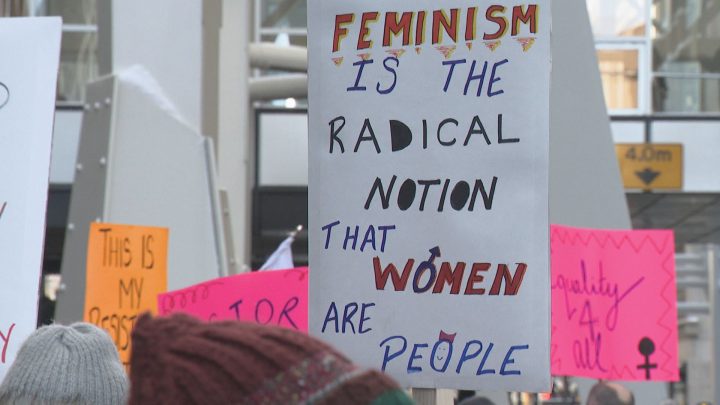

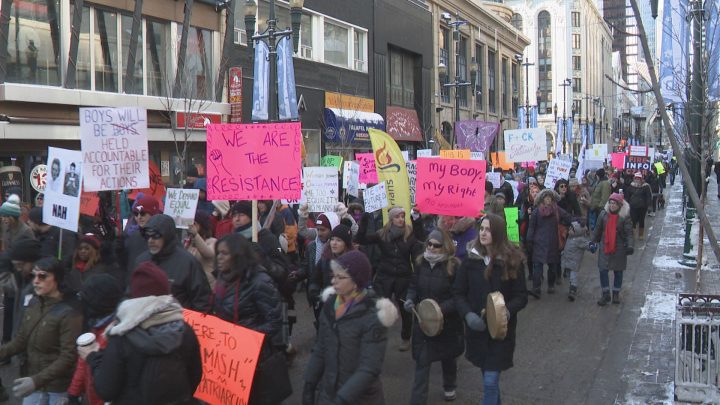

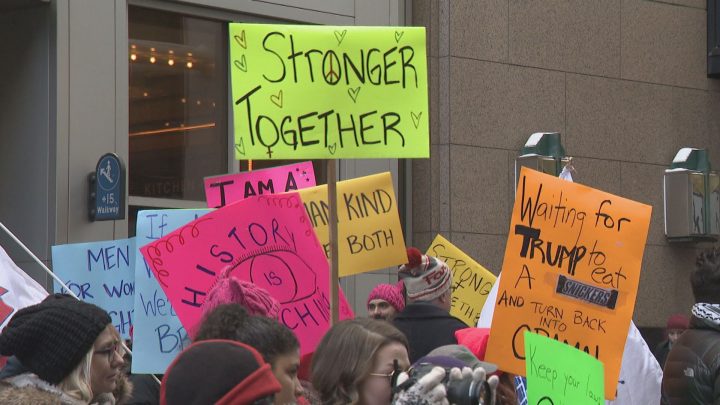

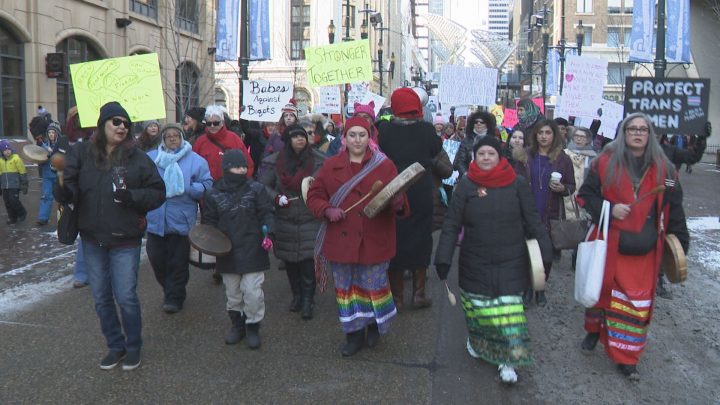

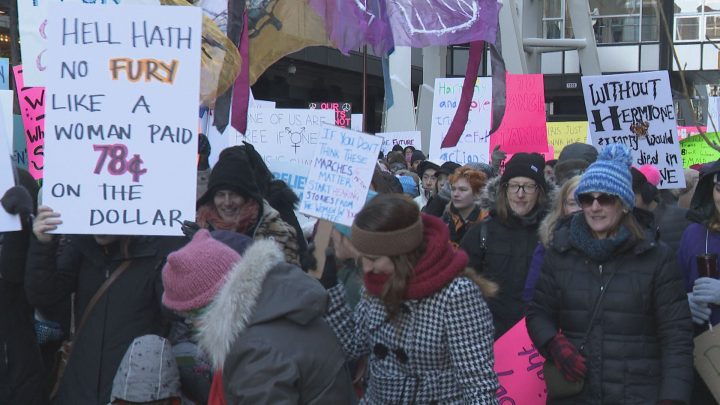

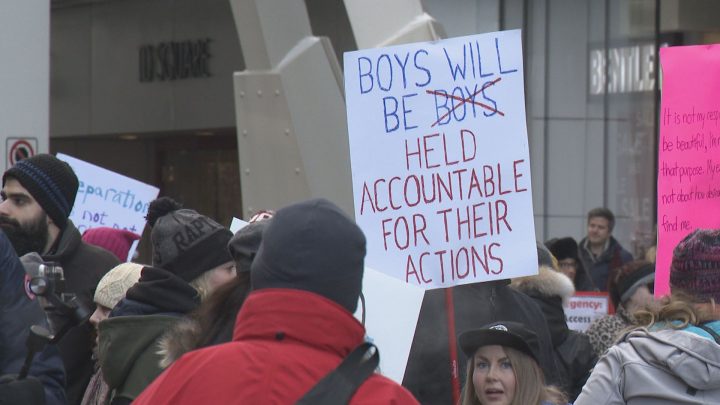

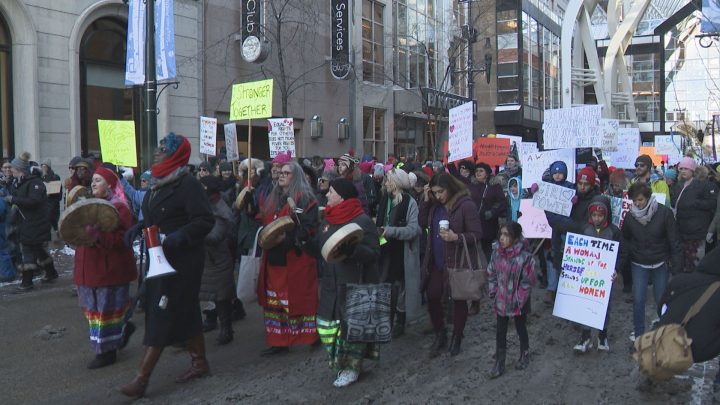



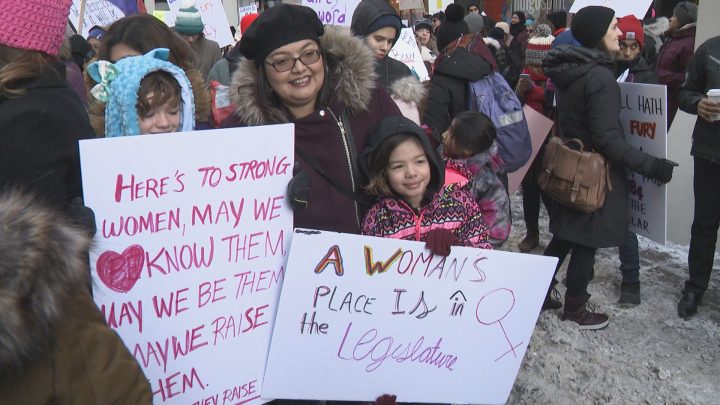

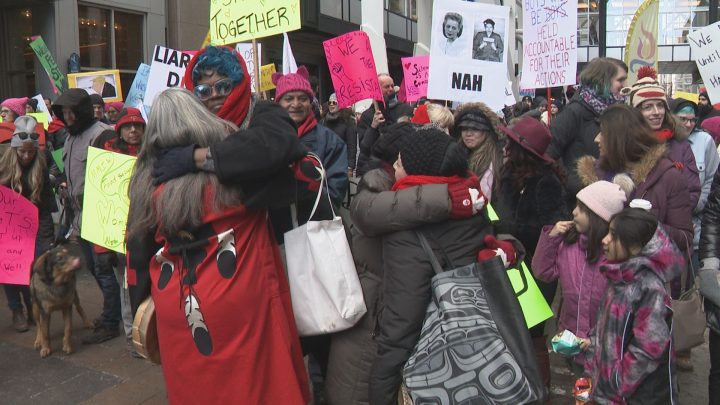











Comments
Want to discuss? Please read our Commenting Policy first.